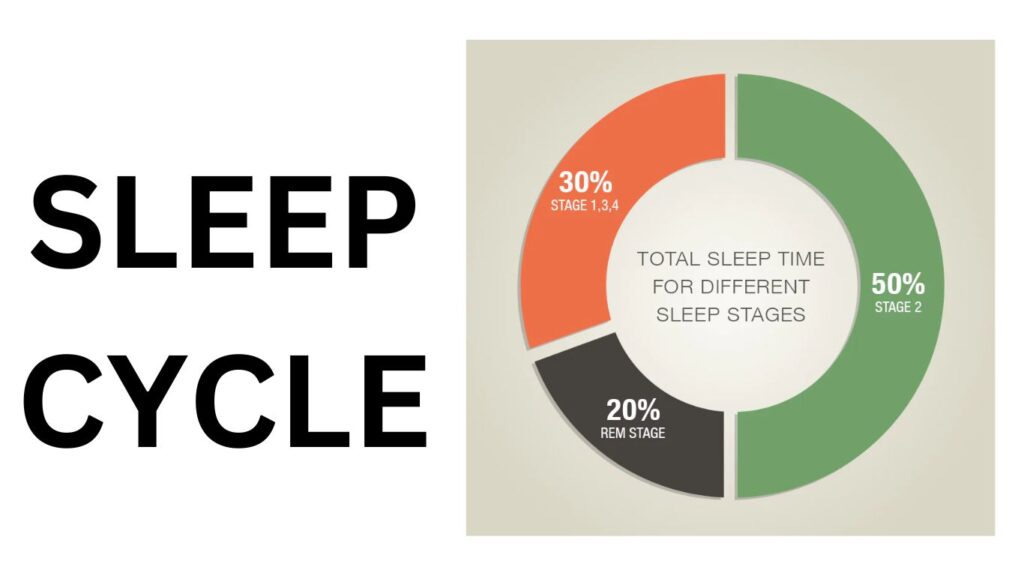Amidst the frenetic pace of contemporary living, sleep frequently gets sidelined despite being fundamental to our physical wellness. True restfulness transcends mere hours in bed—it’s about the revitalizing essence of undisturbed, profound sleep. This guide is an in-depth exploration of sleep’s pivotal role in our physical health. From decoding the sleep cycle to identifying elements affecting sleep quality, we’ll provide practical tips and effective strategies to assist you in giving sleep its due importance and harnessing its remarkable advantages for your overall physical well-being.
Prioritizing Sleep for Physical Well-being: Tips for Quality Rest
The Importance of Quality Sleep for Physical Health
Sleep serves as a linchpin for robust physical health, intricately linked to vital bodily functions. Adequate sleep fortifies the immune system, bolstering its defenses against illnesses and infections. Moreover, it regulates hormone production, including those governing appetite and stress, crucial for metabolic balance. This restorative rest is pivotal for overall well-being, influencing cognitive function, emotional resilience, and cellular repair. A deficiency in quality sleep disrupts these processes, potentially compromising immune response, hormonal equilibrium, metabolic health, and the overall harmonious functioning of the body.
Quality sleep transcends mere hours on the clock; it’s about the depth and restorative essence of rest. Beyond duration, it encompasses the rejuvenating cycles of deep sleep crucial for bodily repair and renewal. This restorative phase, characterized by slow-wave sleep and REM cycles, is where the body heals, consolidates memories, and regulates various physiological functions. Understanding and nurturing these restorative sleep patterns are key to unlocking the true benefits of a good night’s rest.
Understanding the Sleep Cycle
Sleep is a complex process involving alternating stages crucial for physical and mental restoration. The sleep cycle consists of two main categories: non-REM (NREM) and REM (Rapid Eye Movement) sleep, each holding distinct significance.
Non-REM sleep unfolds through three sequential stages. N1, the initial stage, marks the transition from wakefulness to sleep, characterized by light sleep and a drifting sensation. N2 follows, where the body further relaxes, and brain activity decreases. This stage facilitates memory consolidation and primes the body for deeper sleep. N3, also called slow-wave or deep sleep, is the most restorative phase. It promotes physical restoration, supports immune function, and aids in the release of growth hormones crucial for tissue repair.

Subsequently, REM sleep ensues, characterized by increased brain activity, rapid eye movements, and vivid dreaming. Despite muscle paralysis, critical processes like memory consolidation, learning, and emotional regulation occur during this stage. REM sleep plays a vital role in cognitive function and mental well-being.
The sleep cycle involves multiple transitions between these stages throughout the night, typically recurring every 90 minutes. This cyclical progression is vital for achieving restorative sleep. Each stage contributes uniquely to physical and mental rejuvenation, and a balanced cycle ensures the body undergoes necessary repairs, consolidates memories, and regulates emotions.
Factors Affecting Sleep Quality
Several factors significantly influence the quality of sleep, impacting the ability to achieve deep, restorative rest. Stress, lifestyle choices, sleep environment, and electronic device usage are key elements that can either promote or hinder quality sleep.
- Stress: Elevated stress levels directly interfere with the ability to attain deep sleep. High stress triggers the release of cortisol, a hormone that can disrupt the natural sleep cycle. Anxiety and worries also increase mental arousal, making it challenging to relax and fall asleep. Chronic stress might lead to insomnia or fragmented sleep, inhibiting the body’s ability to enter the restorative phases crucial for physical and mental rejuvenation.
- Lifestyle Choices: Habits like irregular sleep schedules, excessive caffeine intake, alcohol consumption, and irregular meal times can negatively impact sleep quality. Irregular sleep patterns confuse the body’s internal clock, hindering the synchronization of sleep cycles. Caffeine and alcohol disrupt sleep by affecting the nervous system, leading to fragmented sleep or difficulties in falling asleep. Additionally, large meals close to bedtime can cause discomfort, making it harder to achieve deep sleep.
- Sleep Environment: The sleep environment plays a significant role in sleep quality. Factors like excessive noise, uncomfortable temperatures, uncomfortable bedding, and inadequate lighting can disrupt sleep. A noisy environment disturbs the continuity of sleep cycles, preventing the body from reaching deep sleep stages. Similarly, uncomfortable temperatures or poor bedding can lead to physical discomfort, hindering the ability to achieve restorative sleep.
- Electronic Device Usage: The use of electronic devices before bedtime emits blue light that suppresses the production of melatonin, the hormone responsible for regulating sleep-wake cycles. Exposure to screens disrupts the body’s natural circadian rhythm, making it harder to fall asleep and reducing the quality of rest once asleep. Additionally, the content viewed on screens might induce mental arousal, further inhibiting the transition to deep sleep.
Tips for Improving Sleep Quality

1.Establishing a Sleep Routine:
Maintaining a consistent sleep schedule and bedtime routine is pivotal for quality sleep. A regular sleep-wake cycle regulates the body’s internal clock, enhancing the ability to fall asleep and achieve deep rest. Crafting a calming bedtime routine aids in this process. Consider activities that promote relaxation, like gentle stretching, taking a warm bath, or practicing mindfulness.
Avoid screens at least an hour before bed as the blue light disrupts melatonin production. Engaging in soothing activities such as reading, listening to calming music, or practicing deep breathing exercises signals to the body that it’s time to unwind, facilitating a smoother transition to a restful sleep.
2.Optimizing Sleep Environment
A comfortable sleep environment significantly impacts sleep quality. Maintaining an optimal temperature, typically between 60-67°F (15-20°C), promotes restfulness. Dimming lights signals the body to produce melatonin, aiding in sleep onset. Minimize noise disruptions with earplugs or white noise machines.
Invest in a supportive mattress and pillows that suit personal preferences—whether firm or soft—to alleviate discomfort. Create an ideal sleep environment by ensuring the room is dark, cool, and quiet, optimizing bedding for comfort, and eliminating distractions, thereby fostering an atmosphere conducive to deep and uninterrupted sleep.
3.Healthy Lifestyle Habits for Better Sleep
Diet, exercise, and caffeine intake profoundly affect sleep quality. Consuming heavy or spicy meals close to bedtime may cause discomfort, hindering sleep. Regular physical activity promotes better sleep, but exercising too close to bedtime might increase alertness, making it harder to fall asleep. Caffeine, a stimulant found in coffee, tea, and certain sodas, disrupts sleep by blocking adenosine receptors, delaying sleep onset and reducing overall sleep quality.
To improve sleep, consider a lighter meal for dinner and avoid large meals before bedtime. Exercise earlier in the day, allowing ample time for the body to wind down. Limit caffeine intake, especially in the afternoon and evening. Opt for herbal teas or decaffeinated beverages instead. Balancing diet, exercise, and caffeine intake by moderating consumption times can significantly enhance sleep quality, facilitating a more restful and rejuvenating night’s sleep.
4.Limiting Screen Time and Blue Light Exposure
Electronic devices emit blue light, which suppresses melatonin production, disrupting the body’s natural sleep-wake cycle. Prolonged exposure to screens before bedtime delays the onset of sleep and reduces its quality by signaling wakefulness to the brain. To mitigate this impact, establish a digital curfew, avoiding screens at least an hour before bed. Implementing a relaxing wind-down routine, such as reading a book or practicing meditation, helps signal the body for sleep.

Consider using blue light filters or wearing blue light-blocking glasses in the evening. These tools reduce blue light exposure, allowing melatonin production to resume naturally. Additionally, enable device settings for night mode or use applications that reduce blue light emissions. Creating a technology-free zone in the bedroom fosters an environment conducive to restful sleep. Limiting screen time and employing blue light mitigation strategies can significantly improve sleep quality, facilitating a smoother transition into a restorative night’s sleep.
Conclusion:
In the pursuit of physical well-being, embracing quality sleep emerges as a foundational pillar. By delving into the nuances of sleep cycles and adopting actionable strategies, we unearth the profound impact of rest on our bodies. Elevating the significance of sleep not only enriches our physical health but also fortifies our immune system, balances hormones, and revitalizes our overall well-being. Prioritizing quality rest becomes an empowering choice, nurturing our bodies for sustained vitality and optimal health.
Also read: The Calming Connection: Evening Workouts and Better Sleep
